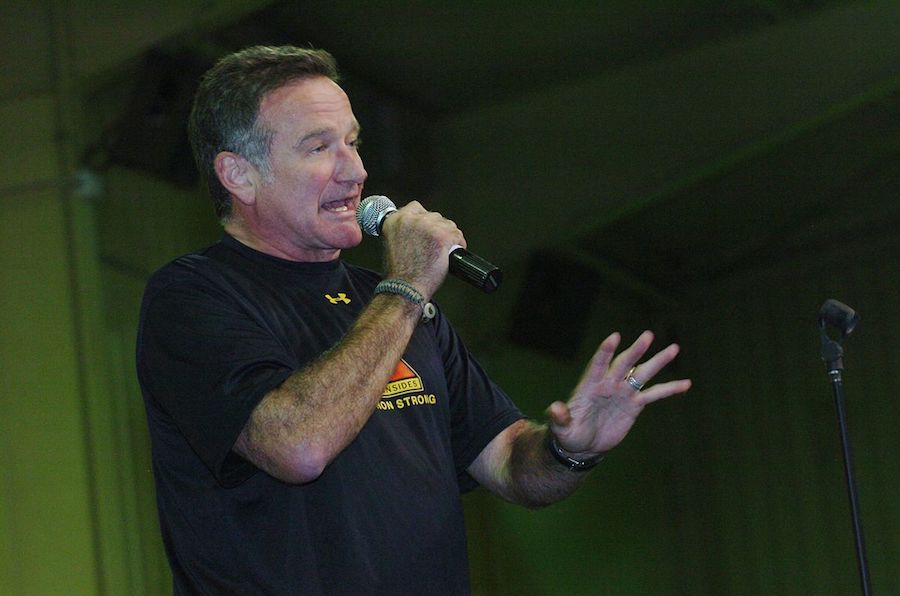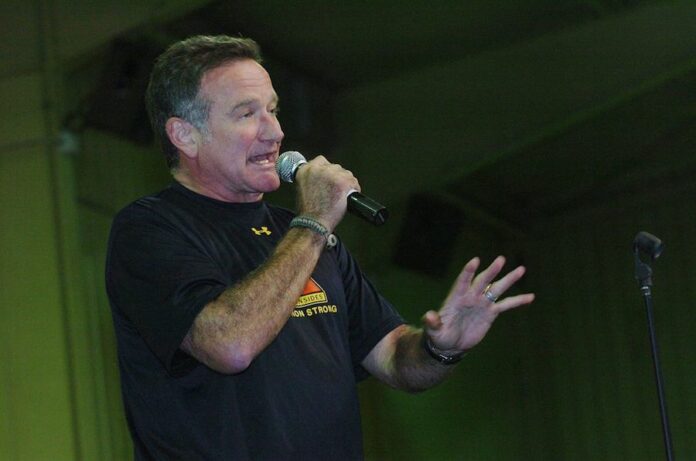
 What do we make of comics struggling with mental illness?
What do we make of comics struggling with mental illness?
When Robin Williams passed in 2014, it felt like the whole world was in mourning. Williams was perhaps the most beloved comic force of our era, and his passing was riddled with questions, shock and confusion. How can someone who everyone loves kill themselves? Why was he so unhappy? How can someone who is so successful on seemingly every level be so fundamentally discontent?
A childhood favorite in my family was, and continues to be, RV. Perhaps one of Williams’ least critically acclaimed films, RV was nevertheless highly acclaimed in our house. We could have spent our time watching one of his real films, like Dead Poets Society or Good Will Hunting, but RV held a special place in our hearts.
In the film, Williams plays an affable dad in a high-stress job who forsakes his family vacation to attend a business meeting under the guise of wanting to connect with his family during an RV trip to Colorado, the location of the meeting. Williams plays his typical role: the sweet, bizarre dad-type who feels somewhat tortured.
The character we are so used to finding in Williams’ work made his death feel even more personal to his audience. Despite always being funny, there was the sense that William’s comedy sometimes came from a place of personal suffering. And he isn’t by any stretch of the imagination the only comic whose humor is somewhat rooted in pain.
At 43, Maria Bamford has been doing stand-up for just under half of her life, and the way she discusses battles with her mental health are uniquely her own: funny, utterly dark and wildly careening through topics from her parents to her bipolar condition. Bamford has struggled with anxiety, depression and OCD since her childhood. In an interview with comic Marc Maron, she discusses the mental health issues that plagued her childhood. She says she doesn’t talk about her eating disorder much: “It’s like, who hasn’t?”
In her stand-up, Bamford discusses these challenges outright. Because of her transparency, viewers feel less concerned about harm coming to her than they might otherwise. There seems to be a level of frankness — one that can enable her to joke about her illnesses — that seems to prohibit her from not attending to her mental health. Bamford acknowledges that while in some ways she is powerless to her illness, she does seem to have enough self-awareness to seek help.
Bamford is unique within her community of comics. Celebrated comedians like John Belushi, of the original Saturday Night Live cast, and Chris Farley, also an SNL legend, both passed before the age of 40 as a result of drug overdose. Their hilarious, over-the-top personalities as sketch comedians juxtapose strongly with their deaths. Their acts did not include bits about battling depression or addiction. Farley is remembered as hilarious, Belushi as an off-the-wall live performer.
An article in Cracked, “Robin Williams and Why Funny People Kill Themselves,” discussed the prevalence of mental illness, specifically depression, in comedians after Williams’ death. It claims that the general reaction of surprise was illogical. Many individuals who create a comic identity have an inner experience in opposition to their work. The author argues that people who are suffering create an exterior of humor which protects them from potential criticism of their true character, about which they may be insecure.
Bamford herself, in a conversation with Maron, acknowledges the irony of her career — presenting herself to be liked by others while simultaneously struggling to like herself. This irony is present in the case of Robin Williams, who was so loveable to his audience but, maligned by his depression, covertly struggled to love himself.
Comedy has the power to heal, convert, question and challenge. Comedians like Bamford bring mental health issues to light by finding humor in the struggles they inevitably bring. Despite the power in comedy like Bamford’s, perhaps the most troubling aspect of mental illness is that it is often unresponsive to a treatment like open discussion. It’s challenging to understand that Robin Williams was truly a tortured person who protected himself with his humor, but if we are to honor his legacy, we must take him for all that he is and was. His work in comedy may have stemmed from his mental health challenges, may have been an escape from them, or may not bear any relation to them at all.
Comedians prove that humor can live in a destructive harmony with despair. Perhaps as the culture which holds these people becomes more receptive to and understanding of mental illness, the humor which is born from self-loathing will all but disappear, replaced by a Bamford-esque form of honest, self-deprecating, therapeutic discussion of facing and overcoming — but also failing — the insecurity and illness so many comics face.
Written by: Stella Sappington — sasappington@ucdavis.edu.
Disclaimer: The views and opinions expressed by individual columnists belong to the columnists alone and do not necessarily indicate the views and opinions held by The California Aggie.





